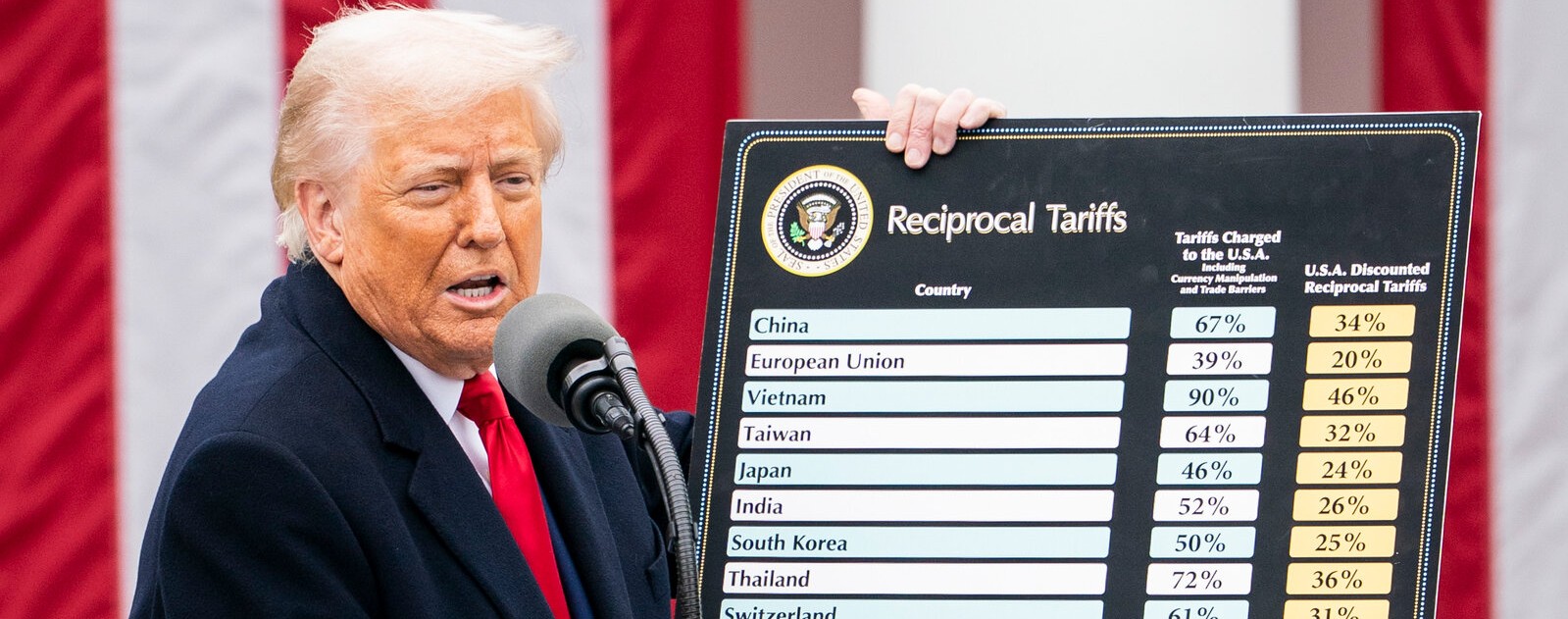Tariffs Probably Won't Work

I've been thinking a lot about the tariffs that the Trump administration has recently put in place on imports into the US. I don't think that they'll work, and I think most reasonable people would probably come to the same conclusion. I know people who disagree with me though, and I thought it was important that I try to outline and clarify why I don't think the tariffs would work.
Companies will raise the price of their products to offset the loss from the tariffs. Because the tariffs are so large (25-55%), they will likely have to raise their prices or go out of business, because the tariffs are larger than their profit margin. Most people understand that this will happen, but they believe that this is a short-term pain for a longer term gain. If the tariffs cost companies enough, they will bring their manufacturing facilities back to the US, providing jobs and contributing to the local economy.
I don't believe that's the case and think that these people are vastly underestimating how much pain the tariffs will cause.
These tariffs apply to almost every country that we do business with and almost every industry that we trade in. This means that not only are cars subject to these tariffs, but the metal, plastic, and electronics that go into making cars are as well. These are called "intermediate goods", and almost every product that we buy is manufactured from them (if there are companies that own their manufacturing process all the way from mining the raw materials to selling the products, I've never heard of them).
So the tariffs are applied to cars, the components of the cars, and the raw materials that all of those intermediate goods are made out of. That means that even if a car manufacturer moves facilities to the US, they'll still be paying higher prices for the upstream materials. So we just reshore the component manufacturing too, right? That will fix it, and bring even more jobs to the US. Except the component manufacturers will still be paying higher prices for the materials that they need to make the components, and so on. At some point, we reach economic bedrock and it becomes impossible to continue this series of moves.
Take semiconductors, a vital part of most modern electronic devices (including cars), as an example. 92% of the global manufacturing capability for these chips is located in Taiwan, which was just hit with a 32% tariff on imports into the United States. These chips are made from proprietary designs using proprietary techniques, are sold globally, and were never based in the US to begin with. They will not move their production to the US and reproducing that manufacturing capability in the US would take years (if not a decade or more) to do; years in which the United States would find it impossible to make even simple electronic devices without great expense.
In addition, many of the goods affected by the tariffs are elastic, which means that as the price increases, customers will turn to alternatives or refuse to buy the product altogether. Due to decreased demand, companies will downsize their manufacturing capability or lay off workers- there's no point in paying people to make goods that no one is buying. This means that tariffs could add some jobs by forcing businesses to reshore their production to the states, then cost us jobs by forcing businesses to raise prices and reduce production to meet the lower demand for more expensive products.
So the tariffs will likely cause companies to raise prices on their products permanently or semi-permanently, because their intermediate goods will become more expensive, which will lead (in many cases) to decreased demand and a reduction in manufacturing jobs in the US. But will they still build more factories and plants in the states?
Probably not.
Companies will be weighing the expense of building and maintaining factories in the United States (which may become entirely pointless when the tariffs are removed or reduced) against lost profits from higher prices and reduced demand. It seems clear that the optimal path, from their point of view, is to lobby for tariff exceptions and wait until the tariffs go away.
And they will. This or another administration will do away with them, because the alternative is a United States that is unable to compete technologically with the rest of the world. When Germany is manufacturing products with parts and electronics sourced from the best global sources at the lowest possible prices, and the United States is building lower-quality products (we have to import the expertise that the original manufacturers already have) at higher expense because we're hobbled by artificial price controls, then Germany will sell to the world and we won't.
So, prices will increase drastically, even for products that are primarily manufactured in the United States already (due to the higher cost for intermediate goods), which will lower demand, leading to fewer jobs. The companies most affected by the tariffs just have to wait out the tariffs, which they can, because permanent tariffs would lead to a crippled US economy relative to the rest of the world, and a future administration would likely understand this. In the meantime, they can lobby for exceptions and make token moves to placate the US government.
This is why I don't believe that the tariffs will work.